Living Well with Multiple Sclerosis
Welcome to Living Well with MS, the podcast from the Overcoming MS charity. In each episode, your host Geoff Allix explores a different aspect of the Overcoming MS Program in greater depth by talking with experts and people with MS about health lifestyle changes. New episodes are published on Wednesdays and feature interviews with scientists, neurologists, fitness specialists, diet experts, stress reduction professionals. The podcast also features inspirational, real-life stories from people with multiple sclerosis following the Overcoming MS program, about the challenges and victories of managing symptoms through lifestyle modification.
Episodes
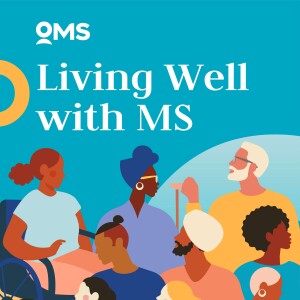
Wednesday Dec 06, 2023
Wednesday Dec 06, 2023
Welcome to Living Well with MS, where we are pleased to welcome Krystina Christiansen as our guest! Krystina is a filmmaker who has recently finished a documentary about an end-of-life letter she found, written by a man with MS. Overcoming MS wants everyone to live a full and healthy life with MS, but it is inevitable that everyone, with or without MS, will pass away. It is therefore unhelpful that death is often a taboo subject. Krystina talks to Geoff about healthy ways to think about your own mortality, her new film, ‘Dear Brandon’ and planning ahead for your end of life, which is something that everyone needs to consider. Keep reading for the key episode takeaways. Topics and Timestamps: 02:29 Krystina found an end-of-life letter from a man with MS on a mountain in Hawaii. 04:12 ‘Dear Brandon’ is a film about death and grief, but also hope and community. 10:41 Healthy ways to think about your own mortality. 12:31 Writing a will and planning your funeral. 14:55 Resources at the end of life. 18:00 Death doulas can help the dying and their families. 20:18 Death cafes are safe spaces to talk about mortality. 24:35 Follow along with Brandon’s story and Krystina’s films. Selected Key Takeaways: Talking about death and dying doesn’t have to be taboo07:03 “To know Brandon is to know someone who is going to die, he is on his deathbed. That's the social contract that you agree to when you become friends with him. I’d also like to point out that that's the social contract you have with everybody. It's just more obvious with him, I guess. I've learned that sometimes just talking about [death] does make it a bit easier for everyone.” Make a plan for your funeral and estate09:32 “Make sure that you plan for your death if it is something that we have the opportunity to do. Planning makes not only your end of life a bit smoother, but also for the ones you leave behind. It makes their lives a lot better and allows them to just focus on grieving versus dealing with the business of death.” Death is not an emergency19:05 “If you have someone in the home who passes away, you don't have to call anyone immediately. You can take your time and be with your loved one. There is no rush. You can even have people come over and say goodbye in the home. You can prepare the body in the home, there are so many different options.” Want to learn more about living a full and happy life with multiple sclerosis? Sign up to our newsletter to hear our latest tips. More info and links: Learn more about Krystina’s work and “Dear Brandon” See the people and places Brandon’s letter reached Connect with others following Overcoming MS on the Live Well Hub Visit the Overcoming MS website Consider leaving a give to Overcoming MS New to Overcoming MS? Visit our introductory page Follow us on social media: Facebook Instagram YouTube Pinterest Don’t miss out: Subscribe to this podcast and never miss an episode. Listen to our archive of Living Well with MS episodes here. If you like Living Well with MS, please leave a 5-star review. Feel free to share your comments and suggestions for future guests and episode topics by emailing podcast@overcomingms.org. Make sure you sign up to our newsletter to hear our latest tips and news about living a full and happy life with MS. Support us: If you enjoy this podcast and want to support the ongoing work of Overcoming MS, we would really appreciate it if you could leave a donation here. Every donation, however small, helps us to share the podcast with more people on how to live well with MS.
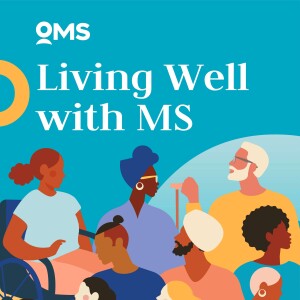
Wednesday Nov 29, 2023
Wednesday Nov 29, 2023
Welcome to Living Well with MS. In this episode, we are sharing the highlights from one of our ‘Ask Aaron’ webinars, where neurologist, Dr Aaron Boster, answers questions about MS from the community. In this episode, Dr Boster covers a range of topics, including heat intolerance, when to start a DMT and his tips for self-managing MS. You can watch the original webinar here. Keep reading for the key episode takeaways. Topics and Timestamps: 02:13 Considerations for changing to a less stressful job and stronger DMTs.05:09 Talking to clinicians about stress.06:25 Hyperbaric oxygen therapy.08:11 Stem cell transplants for PPMS.10:35 Tysabri during pregnancy and breastfeeding.12:23 MS and Stroke.13:52 MRI showing brain cysts.16:57 Betaferon and slow progression.19:45 Changing from Tysabri to Ocrevus.21:41 Vertigo.23:05 Ampyra for walking, spasticity, and nerve pain.25:50 Types of inflammation.28:05 Anesthetic or epidural and MS.30:15 B-cell depletion therapy and allergies.31:17 Tips for self-managing MS.37:42 Heat intolerance.40:30 When to start on a DMT.41:22 Ocrevus and low lymphocyte levels.43:40 Diet and MS.48:50 Nausea as an MS symptom.51:30 CBD for MS.52:45 Bursitis and MS.53:36 Choosing a DMT and considering side effects.55:16 Invisible illness in an ableist world. Selected Key Takeaways: Exercise as part of your daily lifestyle 34:42 “Exercising as part of a lifestyle means that if you do it, you're not rewarded. There's no reward for doing something as part of your lifestyle and if you don't do it, there's no punishment - you're not sent to the naughty corner. So, for example, I have a lifestyle of brushing my teeth. I don't tweet about it. I don't make YouTube videos about it. I don't even talk about it when I get to work. It's just something I do every morning and if I happen to forget to brush my teeth before I head off to the office, I'll run upstairs and do it. This is part of my lifestyle. So, I need people impacted by MS to exercise as part of their lifestyle.” Plan your day to minimise symptoms like heat intolerance39:43 “We can conserve energy during those times when it's really hot out. Whereas I would normally encourage a patient to park at the back of the parking lot to get their steps in. If it's the middle of the day, [walking that far is] going to sap all your energy so that when you get to the grocery store you can't shop, that doesn't really work very well, does it? And so that's an example where we would have someone drop us off at the threshold of the grocery store so that you can be successful in your shopping.” Be brave in using mobility aids and seeking accommodations.57:27 “I tell people who are embarrassed by their cane, ‘Don't you dare be embarrassed by your cane, a cane is a sign of intelligence.’ A person with a cane would like to not fall. So, when a little boy is walking with [his] mum, and says, ‘Mummy, why is she using a cane?’ That's an opportunity for the mother to say, ‘Well, she doesn't want to fall, she has a problem with her leg and the cane helps her.’ It normalises it. So, one of the things that we need to do is to be brave. I'll remind you of the definition of bravery, ‘doing something despite being scared’. The second thing is, I want you to be very selfish. You need to be selfish; you live your life once. You're not living your life so some stranger, you don't know, thinks nice polite things about you.” Want to learn more about living a full and happy life with multiple sclerosis? Sign up to our newsletter to hear our latest tips. More info and links: Watch the original webinar here. Dr Boster was on three previous Living Well with MS episodes: S1E11: Making the Right Medication Choices S2E17: Lifestyle Choices and Their Impact on MS S3E43: Let’s Talk About (and MS) Check out Dr Boster’s popular YouTube channel covering all aspects of MS. New to Overcoming MS? Visit our introductory page Connect with others following Overcoming MS on the Live Well Hub Visit the Overcoming MS website Follow us on social media: Facebook Instagram YouTube Pinterest Don’t miss out: Subscribe to this podcast and never miss an episode. Listen to our archive of Living Well with MS episodes here. If you like Living Well with MS, please leave a 5-star review. Feel free to share your comments and suggestions for future guests and episode topics by emailing podcast@overcomingms.org. Make sure you sign up to our newsletter to hear our latest tips and news about living a full and happy life with MS. Support us: If you enjoy this podcast and want to support the ongoing work of Overcoming MS, we would really appreciate it if you could leave a donation here. Every donation, however small, helps us to share the podcast with more people on how to live well with MS.
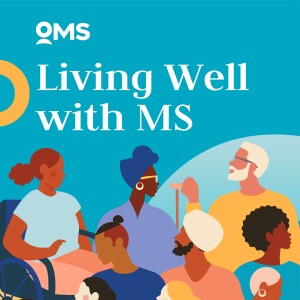
Wednesday Nov 15, 2023
Wednesday Nov 15, 2023
Welcome to Living Well with MS. In this episode, we are sharing the highlights from our webinar, ‘A guide to the Overcoming MS Diet’, with Gillian Robertson and Ashley Madden. Gillian and Ashley are both professional chefs who follow the Overcoming MS Program. In this webinar, they discuss how to adopt the diet, the benefits of a plant-based diet, dairy substitutes and much more. Watch the original webinar here. Keep reading for the key episode takeaways. Topics and Timestamps 02:52 Practical ways to adopt the Overcoming MS Diet. 08:56 What is a plant-based diet? 14:58 Meals and snacks that offer a complete protein. 22:32 Substituting cheese and ice cream. 27:13 Cooking without oil. 33:13 Meal planning equipment. 39:33 Plant-based meal planning on a budget. Selected Key Takeaways A whole food, plant-based diet is health-promoting. 11:00 Ashley Madden: “A plant-based diet is high in essential nutrients like vitamins, minerals, and fibre. It's overall anti-inflammatory because we're getting a lot of antioxidants from all those colourful plant foods. It's low in saturated fat, which is important for us, of course, and also has extensive health benefits that go beyond. A plant-based diet has been shown to reduce the risk of some cancers, it can help with weight loss or weight stabilisation, and it can also decrease the risks and sometimes reverse some of the modern-day chronic diseases that we're seeing in a lot of the developed countries.” It’s easy to get enough complete protein on a plant-based diet. 14:27 Ashley Madden: “What modern science has taught us is that the amino acid gaps in one plant food are filled in by another plant food. The bottom line is that you don't need to strategically pair plant foods in specific meals to get the protein that you need. We now know that eating a variety of whole plant foods will get you all of the essential amino acids that are required. I have here listed just some simple meal and snack ideas that actually do offer you complete protein that you're probably already doing and don't even know it. So brown rice and beans, oatmeal, and nuts and seeds or soy milk, sprouted bread is a great one because it has a combination of legumes and grains and nuts and hummus on whole wheat toast.” Plant based cooking can be done on a budget. 39:45 Gillian Robertson: “Organic now is a big trend. Obviously, it can be very expensive. Don't feel that you always have to buy organic. As long as you're washing your fruit and vegetables well, you're going to be okay. And it's okay to look at frozen fruit and vegetables as well as fresh ones, these are often cheaper, they're just as nutritious and they can help save time because they're often pre-prepared as well. Frozen fish can also be much more economical. If you start thinking about the inexpensive items in plant-based cooking, [such as] grains, pulses, seasonal vegetables, if you make those the base of your meals, then your meals really are not going to cost that much money. More info and Links: Watch the original webinar Try out some recipes on our website Read our blog for tips on shopping at the supermarket New to Overcoming MS? Visit our introductory page Connect with others following Overcoming MS on the Live Well Hub Visit the Overcoming MS website Follow us on social media: Facebook Instagram YouTube Pinterest Don’t miss out: Subscribe to this podcast and never miss an episode. Listen to our archive of Living Well with MS episodes here. If you like Living Well with MS, we’d appreciate it if you could leave us a 5-star review. Feel free to share your comments and suggestions for future guests and episode topics by emailing podcast@overcomingms.org. Make sure you sign up to our newsletter to hear our latest tips and news about living a full and happy life with MS. Support us: If you enjoy this podcast and want to support the ongoing work of Overcoming MS, we would appreciate it if you can leave a donation here.
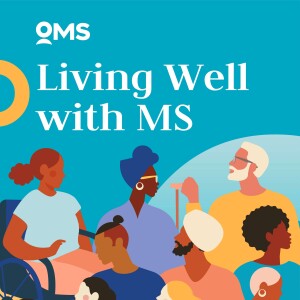
Wednesday Nov 08, 2023
Wednesday Nov 08, 2023
Welcome to Living Well with MS, where we are pleased to welcome Jack McNulty as our guest! Jack is a professional cook and a longtime follower of the Overcoming MS Program. In this episode, he answers questions from the community about how to cook with tofu. Watch this episode on YouTube here. Keep reading for the key episode takeaways. Topics and Timestamps: 01:42 What is tofu? 02:37 Is it possible to make tofu from scratch? 03:59 Benefits of adding tofu to your diet. 05:54 Debunking the myth that ‘tofu is bland’. 07:03 Saturated fat levels in tofu. 08:52 Different types and textures of tofu. 16:24 The difference between tofu and tempeh. 21:49 Ways to change the texture of tofu. 28:57 Do you have to press tofu before cooking? 31:22 Jack’s favourite tofu marinades and recipes. Selected Key Takeaways: Tofu is an affordable, easy-to-digest, source of protein. 04:25 “Tofu is fairly easy to digest. A lot of people who may have trouble [digesting] legumes can actually digest tofu a little bit easier than they can from the whole bean, which is nice. It's definitely a good source of protein. It’s really affordable. The other thing that I think that's really interesting with tofu is it's basically just a blank canvas." Tofu vs. tempeh17:01 “Tofu is made from soy milk from the whole soybean turned into milk and then coagulated. Tempeh which originates from Indonesia (and you see it a lot in Indonesian cooking) is [made from] whole beans. It's generally soybeans, but it can be made with other kinds of beans like chickpeas and is pressed together and inoculated with a mold and then packaged so it has this sort of white net around the beans, which gives it a very specific flavour.” Pressing tofu can make it dry. 29:19 “You want to be careful [pressing tofu] because you're forcing out a lot of the moisture from the interior of the tofu that's going to make it fundamentally dry at the end. I would be very cautious with recipes that say, ‘start off by pressing the tofu’. I think it's much better to take a different approach, maybe freeze it, maybe pour some boiling salted water over it, or marinate it rather than pressing it.” Want to learn more about living a full and happy life with multiple sclerosis? Sign up to our newsletter to hear our latest tips. More info and links: Try Jack’s Marinated & Dry-sautéed Tofu Try Jack’s Tofu Vegan Mayonnaise Listen to ‘S4E48: Ask Jack’ for his tofu scramble recipe New to Overcoming MS? Visit our introductory page Connect with others following Overcoming MS on the Live Well Hub Visit the Overcoming MS website Follow us on social media: Facebook Instagram YouTube Pinterest Don’t miss out: Subscribe to this podcast and never miss an episode. Listen to our archive of Living Well with MS episodes here. If you like Living Well with MS, please leave a 5-star review. Feel free to share your comments and suggestions for future guests and episode topics by emailing podcast@overcomingms.org. Make sure you sign up to our newsletter to hear our latest tips and news about living a full and happy life with MS. Support us: If you enjoy this podcast and want to support the ongoing work of Overcoming MS, we would really appreciate it if you could leave a donation here. Every donation, however small, helps us to share the podcast with more people on how to live well with MS.
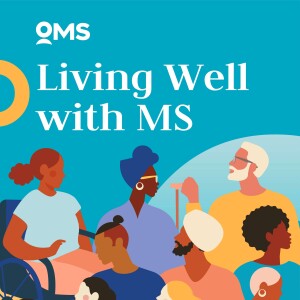
Wednesday Nov 01, 2023
Wednesday Nov 01, 2023
Welcome to Living Well with MS, where we are pleased to welcome Mike Newton as our guest! Mike is an industrial chemist and follows the Overcoming MS Program. He lives in Australia and has been following the recommendations of Dr Roy Swank and Professor George Jelinek for 25 years. He talks to Geoff about the difference between saturated and unsaturated fats, heating oils and his Overcoming MS journey. Watch this episode on our YouTube here. Keep reading for the key episode takeaways. Topics and Timestamps: 01:13 Defining oils, fats, triglycerides and lipids from a cooking and chemistry perspective. 07:35 Fats to avoid and include in your diet. 12:54 What’s the difference between plant, animal and fish triglycerides or fats? 16:44 Why do we want to increase our Omega-3s and decrease Omega-9s? 19:24 The difference between monoglycerides and diglycerides is in the melting point, lower melting points are better for brain health. 22:50 Overcoming MS and Dr Roy Swank Selected Key Takeaways: Defining Oils and Fats 01:40 “Triglycerides are the encompassing description of all oils and fats, whether they are from plants or animals, and whether they are liquid or solid. The terms oil and fat are more for the layman and the cooking man. Oil is a liquid at room temperature, and fat is a solid at room temperature.” Hydrogenated fat in commercially produced foods16:09 “The reason that they use hydrogenated fats is to give the [food] structure so that they can make a pie that you can eat with ease without it all collapsing around you while you're eating it. So, it's purely done for your mouthfeel and structure, so you can eat it (more easily).” Roy Swank’s theory on fat and MS 24:27 “Swank took the theory that the brain is made of a very high percentage of fat and cholesterol. If [your brain] is rock hard like this candle, then when it's rattling around in your head, the lesions in your brain will be scraping against your skull or another very hard piece of brain, causing more symptoms than that you would get if your brain was fluid and malleable.” Want to learn more about living a full and happy life with multiple sclerosis? Sign up to our newsletter to hear our latest tips. More info and links: Recommended Oils on the Overcoming MS Program Guide to understanding Fats in the MS Diet Role of Fats in the Overcoming MS Diet Types of fats in your diet New to Overcoming MS? Visit our introductory page Connect with others following Overcoming MS on the Live Well Hub Visit the Overcoming MS website Follow us on social media: Facebook Instagram YouTube Pinterest Don’t miss out: Subscribe to this podcast and never miss an episode. Listen to our archive of Living Well with MS episodes here. If you like Living Well with MS, please leave a 5-star review. Feel free to share your comments and suggestions for future guests and episode topics by emailing podcast@overcomingms.org. Make sure you sign up to our newsletter to hear our latest tips and news about living a full and happy life with MS. Support us: If you enjoy this podcast and want to support the ongoing work of Overcoming MS, we would really appreciate it if you could leave a donation here. Every donation, however small, helps us to share the podcast with more people on how to live well with MS.
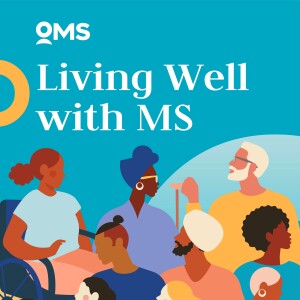
Wednesday Oct 25, 2023
Wednesday Oct 25, 2023
Welcome to Living Well with MS, where we are pleased to welcome Dr David Bilstrom as our guest! Dr Bilstrom, MD is the Director of the International Autoimmune Institute & Bingham Memorial Center for Functional Medicine and an expert in treating autoimmune diseases. He talks to Geoff about what autoimmune diseases are, about Vitamin D and gives his tips for sticking with lifestyle change. Watch this episode on YouTube here. Keep reading for the key episode takeaways. Topics and Timestamps: 00:59 Dr Bilstrom’s introduction and work in autoimmunity. 01:48 Reversing MS symptoms. 03:32 Infections and autoimmune diseases. 05:52 Vitamin D and MS. 10:45 Supplementing with butyrate. 12:23 Leaky gut and autoimmunity. 14:34 Oestrogen dominance and autoimmunity. 19:03 Adverse childhood events and autoimmunity. 23:40 Tips for sticking with lifestyle change. Selected Key Takeaways: The risk of autoimmunity increases if a parent has an autoimmune disease. 02:04 “It's so easy if you get one autoimmune disease to get a second or third or fourth, but also, if a parent has an autoimmune disease, the child is at a higher risk of every autoimmune disease. For example, if a parent gets rheumatoid arthritis, that child is at a 5.4 times greater risk of getting type one diabetes. We want to educate people about what we know about why people get autoimmune diseases.” Vitamin D and prevention of autoimmune diseases06:38 “If a woman's vitamin D is above 50 during pregnancy, she's going to decrease the risk of her child ever getting MS by 50% … Vitamin D is uber important when it comes to immune system stuff, such as preventing MS in pregnancy. Cancer is the flip side of the same coin, that's [another] autoimmune disease. If a woman's vitamin D is above 60, she has automatically decreased her risk of ever getting breast cancer by 82%. Kids that take vitamin D 2000 IU in the first year of life will decrease the risk of ever getting type one diabetes by 90%.” Epigenetics and autoimmunity 11:11 “We used to think our genes, our DNA in our cells, [that] whatever we got from our parents [and] grandparents we’re stuck with it. If a parent has MS, they’d think “well, I wish I could change some of the genes my child has.” Well, it turns out, it's not what genes you have, it’s which ones get turned on and turned off. So, it's epigenetics, the things that influence gene expression. There are a lot of bad genes that drive chronic disease, we’ve got to turn those guys off, as well as good genes that drive health, we’ve got to turn those guys on.” Want to learn more about living a full and happy life with multiple sclerosis? Sign up to our newsletter to hear our latest tips. More info and links: Learn more about Dr Bilstrom’s work Take Dr Bilstrom’s free online course New to Overcoming MS? Visit our introductory page Connect with others following Overcoming MS on the Live Well Hub Visit the Overcoming MS website Follow us on social media: Facebook Instagram YouTube Pinterest Don’t miss out: Subscribe to this podcast and never miss an episode. Listen to our archive of Living Well with MS episodes here. If you like Living Well with MS, please leave a 5-star review. Feel free to share your comments and suggestions for future guests and episode topics by emailing podcast@overcomingms.org. Make sure you sign up to our newsletter to hear our latest tips and news about living a full and happy life with MS. Support us: If you enjoy this podcast and want to support the ongoing work of Overcoming MS, we would really appreciate it if you could leave a donation here. Every donation, however small, helps our charity to share how to live well with MS with more people.
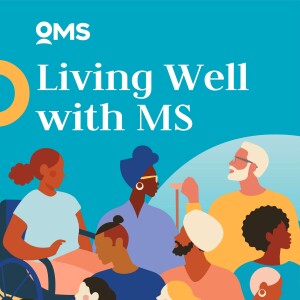
Wednesday Oct 18, 2023
Wednesday Oct 18, 2023
In this episode, we are sharing highlights from our webinar, ‘Breathwork for people living with MS’ with Dr Véronique Gauthier-Simmons. Véronique is a qualified yoga therapist, follows the Overcoming MS Program and has supported Overcoming MS as a facilitator. She discusses what breathwork is, how it can help people living with MS and ends the talk with a breathwork practice for you to try. Watch the original webinar here. Keep reading for the key episode takeaways and Véronique’s bio. Topics and Timestamps 00:58 Véronique’s background 06:25 Véronique’s breathwork training 08:58 Breathing basics 11:24 Dysfunctional breathing patterns 13:31 The power of the breath 16:00 Using the breath to influence other body systems. 18:37 Benefits of breathwork for MS 24:01 The diaphragm 27:00 Breathwork practice Selected Key Takeaways You can take control of your breath. 15:22 “We don't have to think, ‘I need to breathe in, I need to breathe out.’ It happens automatically. But we can also tell the brain, ‘I'm taking over the control, I'm in charge now’. That is the only system in the body that can do that, and that gives us the power to change how we feel because they are connected. We can use the breath as a language to communicate with the different systems in the body.” You can reduce inflammation with breathwork by stimulating the Vagus Nerve 20:26 “There is a really interesting link between breathing and inflammation. I'm sure you've all heard about the Vagus Nerve, and we can stimulate the Vagus Nerve with breathing, [which] reduces stress and inflammation, [as] we know that stress leads to inflammation. So, there is an indirect way to reduce inflammation via the Vagus Nerve with breathwork.” A tense diaphragm can negatively impact our breathing.26:12 “The problem with the diaphragm is that we are not very aware of it, and it can get tense because it’s linked with the Vagus Nerve and the psoas muscle, which connects the upper body and the lower body. So, when we spend many hours sitting [and] when we are stressed, everything tightens, everything gets tense. This affects the movement of the diaphragm and our breathing.” Want to learn more about living a full and happy life with multiple sclerosis? Sign up to our newsletter to hear our latest tips. More info and links: Find out more about Véronique here: Taming the Walrus Breath by James Nestor Dr. Ela Manga New to Overcoming MS? Visit our introductory page Connect with others following Overcoming MS on the Live Well Hub Visit the Overcoming MS website Follow us on social media: Facebook Instagram YouTube Pinterest Don’t miss out: Subscribe to this podcast and never miss an episode. Listen to our archive of Living Well with MS episode here. If you like Living Well with MS, please leave a 5-star review. Feel free to share your comments and suggestions for future guests and episode topics by emailing podcast@overcomingms.org. Make sure you sign up to our newsletter to hear our latest tips and news about living a full and happy life with MS. If you enjoy this podcast and want to support the ongoing work of Overcoming MS, you can leave a donation.
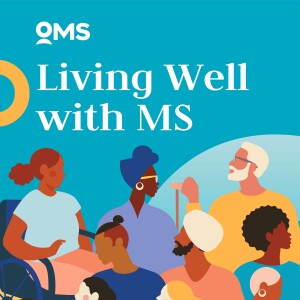
Wednesday Oct 11, 2023
Wednesday Oct 11, 2023
Welcome to Living Well with MS, where we are pleased to welcome Melanie Lown as our guest. Melanie is a mindfulness teacher, has an M.A. in Psychology, and follows the Overcoming MS Program. She talks to Geoff about her MS diagnosis, the power of mindfulness and the importance of self-compassion. Watch this episode on YouTube here. Topics and Timestamps: 01:30 Melanie’s introduction and MS diagnosis. 03:58 Balancing self-advocacy with compassion for healthcare professionals. 07:07 Using a diagnosis to discover your purpose. 09:48 Discovering Overcoming MS. 12:02 Our lived experience is as valid as datasets. 13:29 DMTs and COVID. 16:31 The growing popularity of mindfulness in Western medicine. 21:45 Meditation physically changes the brain. 23:33 Depression and spiritualism are opposite sides of the same neural pathway. 27:54 The awakened brain vs. the achieving brain. 29:39 Activating the parasympathetic nervous system with self-compassion. 33:39 Emotions are not ‘good’ or ‘bad’. 35:44 Mindfully choosing your healthcare team and treatment. 42:22 Tips to incorporate mindfulness into your lifestyle. 47:54 Non-judgmental awareness. More info and links: Visit Melanie’s Website or follow her on Instagram: @welcometothemat. Melanie’s Recommended Meditation teachers and guides: Vinny Ferraro Amanda Gilbert Elisha Goldstein Tara Branch Davidji Insight Timer New to Overcoming MS? Visit our introductory page Connect with others following Overcoming MS on the Live Well Hub Visit the Overcoming MS website Melanie’s Recommended Books: The Awakened Brain by Dr. Lisa Miller Self-Compassion by Kristin Neff How to Change Your Mind by Michael Pollan Radical Acceptance by Tara Brach Cured by Jeffrey Rediger Learned Hopefulness by Dr. Dan Tomasulo Melanie's Recommended Scientific Articles: Fredrickson, B. L., & Losada, M. F. (2005). Positive affect and the complex dynamics of human flourishing. American psychologist, 60(7), 678. Miller, L., Bansal, R., Wickramaratne, P., Hao, X., Tenke, C. E., Weissman, M. M., & Peterson, B. S. (2014). Neuroanatomical correlates of religiosity and spirituality: a study in adults at high and low familial risk for depression. JAMA psychiatry, 71(2), 128-135. Miller, L., Wickramaratne, P., Gameroff, M. J., Sage, M., Tenke, C. E., & Weissman, M. M. (2012). Religiosity and major depression in adults at high risk: a ten-year prospective study. American Journal of Psychiatry, 169(1), 89-94. Portnoff, L., McClintock, C., Lau, E., Choi, S., & Miller, L. (2017). Spirituality cuts in half the relative risk for depression: Findings from the United States, China, and India. Spirituality in Clinical Practice, 4(1), 22. Follow us on social media: Facebook Instagram YouTube Pinterest Don’t miss out: Subscribe to this podcast and never miss an episode. Listen to our archive of Living Well with MS episodes here. If you like Living Well with MS, please leave a 5-star review. Feel free to share your comments and suggestions for future guests and episode topics by emailing podcast@overcomingms.org. Make sure you sign up to our newsletter to hear our latest tips and news about living a full and happy life with MS. Support us: If you enjoy this podcast and want to support the ongoing work of Overcoming MS, we would really appreciate it if you could leave a donation here. Every donation, however small, helps us to share the podcast with more people on how to live well with MS.
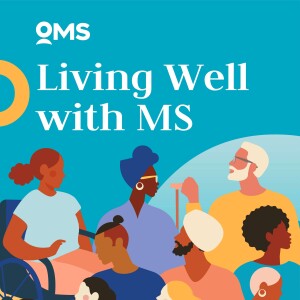
Wednesday Oct 04, 2023
Wednesday Oct 04, 2023
Welcome to Living Well with MS. In this episode, we are delighted to welcome neurologist, Professor Stephen L. Hauser as our guest. Professor Hauser has been researching MS since the 1970s, and his team’s research led to the development of the disease-modifying therapy ‘Ocrevus’. He talks to Geoff about the future of DMTs for MS, what autoimmunity is, and how he and his team developed one of the most world-renowned MS DMTs. Questions and Timestamps 01:45 Can you introduce yourself and tell us about your work? 04:23 What is autoimmunity and how does it relate to MS and inflammation? 06:37 Are some people more prone to develop autoimmune conditions? 10:11 How can a person get the most out of the time they have with their neurologist? 14:01 The benefits of participating in a clinical trial. 16:01 How is MS similar or different from other brain conditions? 20:11 Is there a role of infection in brain diseases like MS? 23:10 The role of hygiene in autoimmunity. 25:40 Book excerpt and how Ocrevus was developed. 32:53 What’s next in B-cell research and MS? 37:58 What tips do you have for lifestyle modifications for people who have MS? More info and links: Read more about Professor Hauser from the American Brain Foundation Read The Face Laughs While the Brain Cries: The Education of a Doctor Read the key episode takeaways and Professor Hauser’s bio New to Overcoming MS? Visit our introductory page Connect with others following Overcoming MS on the Live Well Hub Visit the Overcoming MS website Follow us on social media: Facebook Instagram YouTube Pinterest Don’t miss out: Subscribe to this podcast and never miss an episode. Listen to our archive of Living Well with MS episode here. If you like Living Well with MS, please leave a 5-star review. Feel free to share your comments and suggestions for future guests and episode topics by emailing podcast@overcomingms.org. Make sure you sign up to our newsletter to hear our latest tips and news about living a full and happy life with MS. If you enjoy this podcast and want to support the ongoing work of Overcoming MS, you can leave a donation.
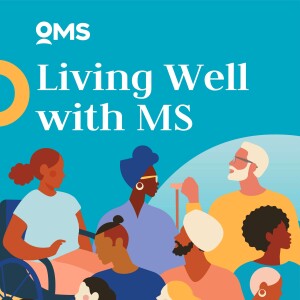
Wednesday Sep 27, 2023
Wednesday Sep 27, 2023
In this episode, we are sharing highlights from our webinar, ‘Movement and Breathing Better whilst Living Well with Overcoming MS’ with Gillian Robinson. Gillian is a physiotherapist at the MS Therapy Centre in Lothian, Scotland. She discusses how MS affects breathing, how to breathe better and the importance of physical activity for people with MS. This webinar was recorded as part of our Finding Hope with Overcoming MS webinar series. Watch the original webinar here. Keep reading for the key episode takeaways and Gillian’s bio. Topics and Timestamps 00:57 Why and how we should breathe. 04:22 How MS can affect respiration. 09:13 Consequences of ineffective breathing. 11:00 Monitoring and slowing your breathing helps with fatigue and stress management. 14:05 Posture and nasal breathing are important. 20:19 Deep breathing exercises can be part of your meditation practice to strengthen respiratory muscles. 27:23 Benefits of exercise for people with MS. 33:00 Include both aerobic and anaerobic activities in your routine. 36:38 Vestibular retraining, physiotherapy, Tai Chi and Thera Bands can be helpful for people with MS. 38:16 Breathing exercises can strengthen your pelvic floor and abdominals. 40:06 Virtual reality and visualisation can both be used to improve wellbeing. 41:53 Noticing your breathing is the first step to improving it. Selected Key Takeaways Breathing can be affected by MS, so it’s important to keep active to strengthen muscles in the respiratory system.04:24 “It's only in recent years that it's been demonstrated that the respiratory system can be affected quite early on in MS. I think most of us are aware that it can be affected in the more advanced stages of MS. [These early effects are] logical really, as we know that muscle strength can be affected by MS in the disease process itself, as wherever your lesions are, they can cause muscle weakness in the rest of our body. So, it makes sense that it will cause muscle weakness in our respiratory system. Not only is this primary weakness a result of the MS itself, but if you're not using [your] muscles and reducing levels of activity, you can develop secondary weakness or deconditioning.” Nasal breathing is really important for optimal health.17:17 “Nasal Breathing is really important. We know that chronic mouth breathing can cause problems with your respiratory system and your lung function and certainly impair the effectiveness of your breathing. You can get dental problems by breathing through your mouth, and you're losing 40% more moisture than you do by breathing through your nose.” Visualisation whilst breathing can help strengthen muscles. 41:00 “An interesting bit of research out there shows that through visualisation activities alone, you can improve muscle strength. So, if you struggle with activity and getting your body moving, visualise activities that you might enjoy. The more detail that you can add to your mental imagery, the better and the more likelihood of success. Just try to bring your awareness of your breath. We've talked about how important breathing technique and exercising your respiratory muscles is.If your breathing is optimised, it most definitely has a knock-on effect on your wider wellbeing.” Noticing your breathing is the first step to improving it.42:39 "Notice your breathing responses during activity, so notice what your breathing patterns do. Do you start to get more shallow as you get more effortful? Do you start to breathe through your mouth? Be more mindful of how your breathing responds to activity." Want to learn more about living a full and happy life with multiple sclerosis? Sign up to our newsletter to hear our latest tips. More info and links: Watch the original webinar and access downloadable content Find out more about the breathing techniques Gillian has mentioned Find out more about the Wim Hof method New to Overcoming MS? Visit our introductory page Connect with others following Overcoming MS on the Live Well Hub Visit the Overcoming MS website Follow us on social media: Facebook Instagram YouTube Pinterest Don’t miss out: Subscribe to this podcast and never miss an episode. Listen to our archive of Living Well with MS episode here. If you like Living Well with MS, please leave a 5-star review. Feel free to share your comments and suggestions for future guests and episode topics by emailing podcast@overcomingms.org. Make sure you sign up to our newsletter to hear our latest tips and news about living a full and happy life with MS. If you enjoy this podcast and want to support the ongoing work of Overcoming MS, you can leave a donation. Gillian’s bio: Gillian’s qualifications and career background After graduating from Dundee University with a BSc Hons in Anatomical Sciences, Gillian went on to study physiotherapy. She graduated in 2002 and worked in Croydon University Hospital for 10 years where she cemented her passion for neurology. During her time in Croydon, she completed an MSc in Acupuncture from Coventry University, a useful tool for the treatment box. The MS Therapy Centre In 2012, Gillian moved to Edinburgh where she began working at the MS Therapy Centre Lothian as Lead Physiotherapist. Here she has developed a reputable service for those who attend the centre and has established strong links with the medical and healthcare professionals who are involved in their clients’ care. The ethos promoted by the MS Therapy Centre is one of supported self-management, encouraging and enabling the clients to understand and take control of their symptoms. Within her role Gillian is dedicated to helping people explore their capabilities and facilitate them to achieve a fitter, healthier, happier self. The Health Design Collective – designing products to support people with MS. Gillian is also a director of the social enterprise, Health Design Collective. Set up in 2019, they have a vision to create innovative products for people with long-term health conditions through co-design with the end users. Their first product currently under development is footwear for people with foot drop.




